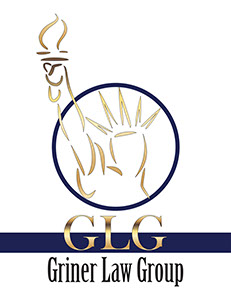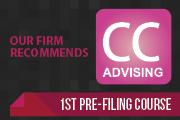
Telephone: (574) 255-1776
Text: (574) 400-5292 (law2)
Fax: (574) 255-2341
Email: GaryGriner@GrinerLaw.com


In every case, we will treat our clients with respect and work hard to achieve the best results

Bankruptcy

We are a debt relief agency that helps eligible clients file for bankruptcy relief under the Bankruptcy code.
Bankruptcy
If you are struggling with debt, there are basically two options:
1) Negotiate with your creditors for better terms, or 2) Bankruptcy.
What can bankruptcy do for me?
Filing bankruptcy has a very powerful effect on your creditors and may have a dramatic impact on your life. By filing bankruptcy, you may be able to:
- Stop harassing phone calls!
- Stop lawsuits!
- Stop foreclosure!
- Stop wage garnishment!
- Stop threatening letters!
- Stop repossession!
- Lower your car and/or mortgage payments!
- Stop being over-stressed about your bills!
- Keep your property!
If you receive frequent telephone calls from creditors demanding payment, have received court papers from creditors who are suing you, face the loss of property due to repossession or foreclosure, bankruptcy could be the solution that you need. Through bankruptcy, you might be able to stop all the phone calls, throw away the court papers, and keep your property. Perhaps most importantly, you’ll be able to stop worrying and stressing about the bills.
What should I bring when I meet with a bankruptcy attorney?
- Photo identification.
- Tax returns for the last 2 years.
- Pay stubs for you and your spouse for the past sixty (60) days.
- Last three bank statements.
- Copies of most recent bills - mortgage, car loan, credit cards, medical bills, utility bills, telephone bills, everything. Copies of any debt collection notices that you have received from collection agencies or attorneys.
- A list of all of your significant assets - retirement accounts, vehicles, collections, household goods. For household goods, please describe the item, it’s approximate age, and condition (e.g., large beige leather couch, approximately 5 years old, fair condition).
- If you claim education expenses for yourself or child - documents to show those costs.
- If you have any judgments in your favor (someone owes you), please provide the name, address, and telephone number of the attorney handling the judgment. Also, please bring whatever paperwork you have for any judgments against you.
- Copies of car titles for vehicles that you own.
- Copies of all current homeowners and renter’s insurance policies.
- If you own a home, a copy of the latest tax statement, showing the assessed value.
- If your home is for sale or was sold during the last year, provide a copy of any listing agreement.
- If you have a child support obligation, please bring court orders and other documents establishing that obligation. We will need the name, address and telephone number of the person to whom support is payable.
- Your credit report. It is available for free one time each year at: www.annualcreditreport.com.
What is bankruptcy?
It is a legal proceeding that allows you to eliminate or greatly reduce your debts. The idea is to give you a fresh start. For individuals there are two types of bankruptcy, Chapter 7 and Chapter 13.
What is the difference between Chapter 7 and Chapter 13?
Usually in Chapter 7 all of your debts are discharged. In Chapter 13, you will submit a plan to pay creditors a portion of what you owe and be debt free in a few years. For most people, Chapter 7 is advantageous, however, many people will not qualify for Chapter 7 and must look to 13 for relief.
If I file bankruptcy, do I lose all of my stuff?
Usually, you can keep most or all of your property. There are certain assets that are exempt from creditors. The table below lists exemptions under Indiana law. In addition, you can generally keep items, such as cars, which are subject to liens through reaffirmation agreements.
How does the bankruptcy process work?
The process starts by the filing of a bankruptcy petition. Before you can file, you will be required to complete an approved credit counseling class. Your lawyer should refer you to an agency offering the class; usually there is a small fee or no fee for the class and it may be completed online or by telephone. In addition, you will need to provide a great deal of financial documentation to your attorney.
Shortly after filing, you will be required to provide a variety of financial records to the bankruptcy trustee, so that the trustee can evaluate your petition and be sure that you qualify for bankruptcy protection. You will also be required to complete a financial education class. There is a meeting of creditors at which creditors may appear and ask questions regarding your finances and bankruptcy petition. Creditors usually do not appear, but the trustee will have some questions which you will be required to answer. In most cases, shortly following the meeting of creditors, the bankruptcy court will issue an order approving your petition.
How do I know if I qualify for bankruptcy?
This determination is complicated and requires a thorough financial analysis. If you are thinking of filing bankruptcy call a bankruptcy attorney for an evaluation.
Where can I get more bankruptcy information?
U.S. Trustee’s Bankruptcy Information Sheet:
http://www.justice.gov/ust/eo/ust_org/bky-info/
U.S. Bankruptcy Court for the Northern District of Indiana:
Other Websites:
What is debt negotiation and reduction?
In some cases when you face financial hardship due to loss of income, illness, divorce, etc, it is possible to avoid bankruptcy by settling your debts for less than owed. My office will deal with your creditors directly and negotiate for the following:
- Reduced Interest Rate
- Reduced Monthly Payment
- Reduced Payoff
- Reduced/Eliminated Late Fees
Consider an example of how this might work. You are laid off from a good job and forced to take one that pays significantly less. Certain bills have to be paid - rent, car payments, child support, etc. - or you won’t have a place to live or transportation to work, etc. You have other bills that you want to pay and have some ability to pay but with your lower pay, you just can’t afford it all. These bills would include things such as unsecured loans, signature loans, credit cards, medical bills, etc. In this kind of situation, my office would attempt to reach an agreement with certain of your creditors to reduce the monthly payments so that they fit into your budget. We would also attempt to reduce the balance on those debts, so that you can have a predictable plan to get out of debt.
Why consider debt negotiation rather than bankruptcy?
Bankruptcy is public record and it has a negative impact on your credit for up to 10 years. You might struggle for years to re-build your credit. In some cases, debt reduction is much less damaging to your credit and easier to get past in the future. Some people do not qualify for bankruptcy but can still receive some relief from debt.
Why would creditors agree to negotiated terms?
Creditors understand that if you file for bankruptcy they may not get paid anything, so sometimes they are willing to make a deal.




